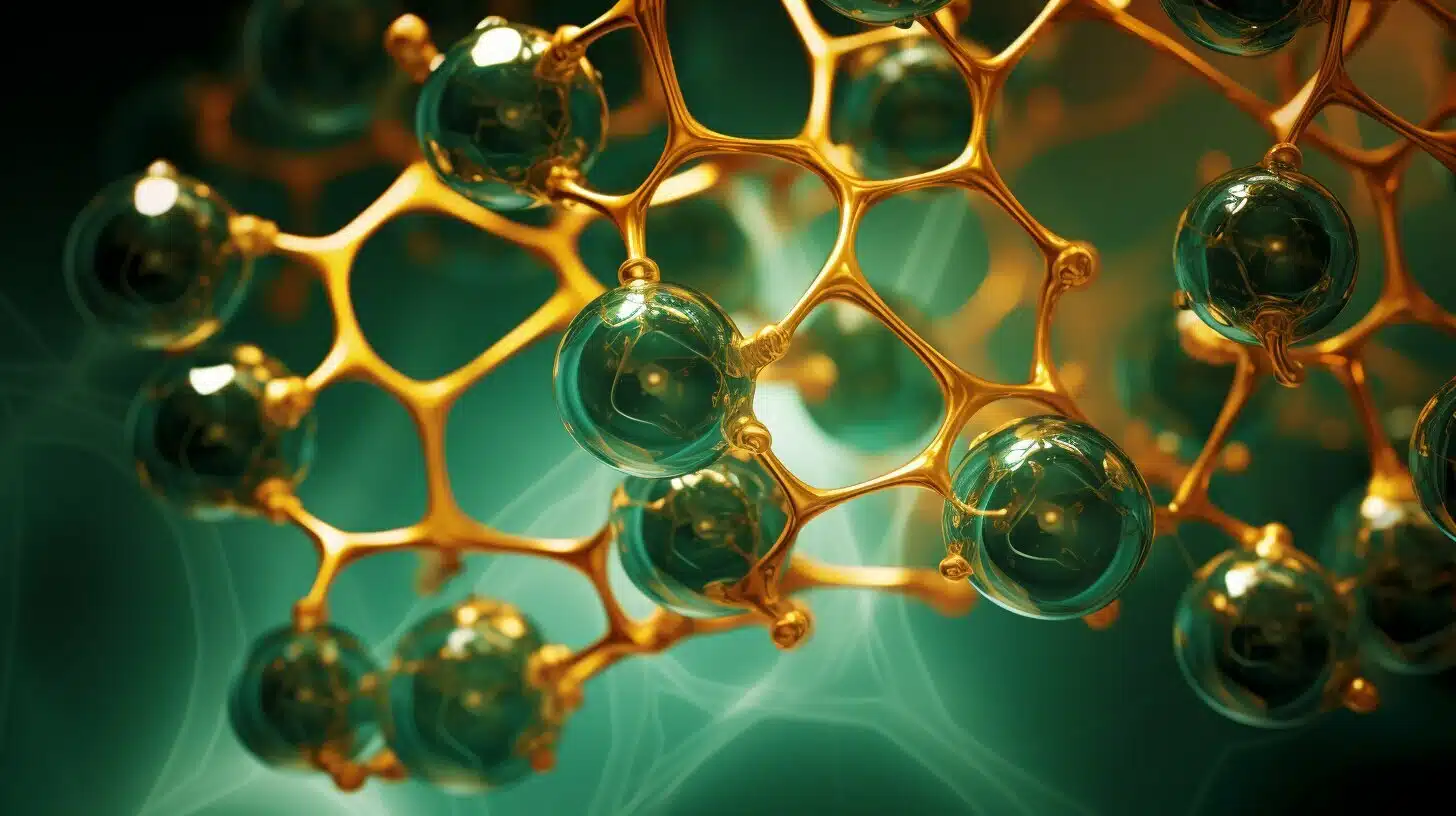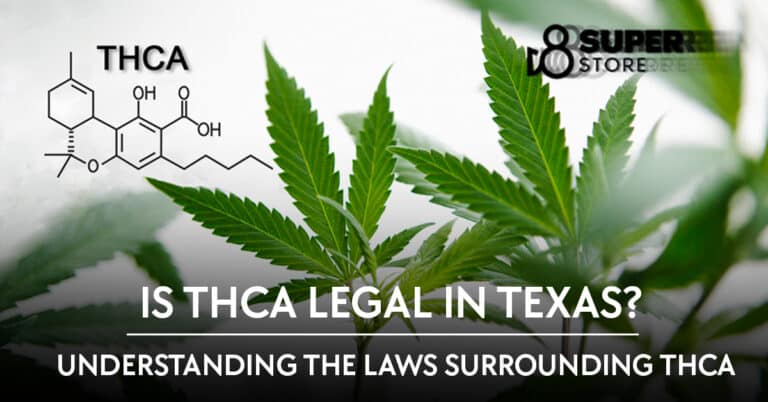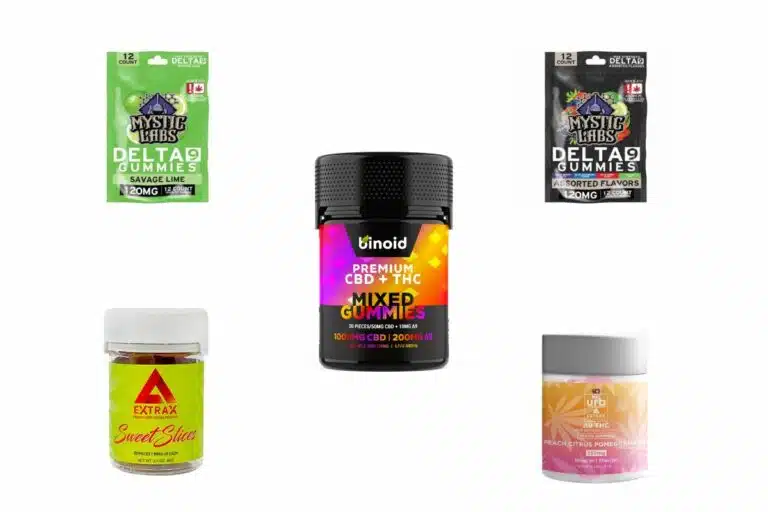What is 8OH-9 THC aka 8-Hydroxy-delta-9-THC
Delta-8 THC, or 8-Hydroxy-delta-9-THC for the science fans, breezes into the cannabis scene like a chill wind. Think of it as THC’s mellow cousin – not as intense, but still rolling with the same crew, all thanks to its roots in hemp-derived CBD.
Delta-8 THC and delta-9 THC have similar psychoactive effects and can produce a “high,” although delta-8 THC is generally less potent. Delta-8 THC products are available in various forms, including gummies, chocolates, tinctures, and vaping cartridges.
However, it is important to note that the Food and Drug Administration (FDA) has not evaluated or approved delta-8 THC products. Some manufacturers have received warning letters for misbranding and making unproven health claims.
Delta-9 THC is the major intoxicating component of cannabis and is available in various products at cannabis dispensaries. It has been studied for its potential therapeutic benefits such as pain relief, improved sleep, increased appetite, and relaxation.
Consuming high amounts of delta-9 THC can have adverse effects such as paranoia, anxiety, sedation, and low blood pressure. It is important to use cannabis products responsibly and follow recommended dosages.
Delta-8 THC and delta-9 THC share similarities in their effects and activate the body’s cannabinoid receptors. However, there are also differences in their regulation, potency, and legality.
While delta-9 THC is highly regulated in states with legalization measures, the regulation of delta-8 THC products is less consistent. It is important to check the legal status of delta-8 THC in your state before purchasing or consuming these products.
In addition to delta-8 THC and delta-9 THC, CBD is another prominent cannabinoid that is non-intoxicating. It is known for its analgesic, anti-inflammatory, and anxiolytic properties. CBD does not produce a “high” but can induce relaxation and decreased appetite.
CBD is legally available under the 2018 Farm Bill, while the legality of delta-8 THC varies by state. It is important to stay informed about current laws and regulations regarding these substances.
In the following sections, we will delve deeper into the psychoactive effects, medical uses, legal status, and potential risks associated with these cannabinoids.
The Psychoactive Effects of 8OH-9 THC
8OH-9 THC, like delta-8 THC, can produce psychoactive effects commonly associated with a “high,” although it is generally considered to be less potent. When consumed, it interacts with the body’s endocannabinoid system, specifically the CB1 receptors located in the brain and central nervous system. This interaction leads to various psychological and physiological effects.
Some users report feeling euphoria, relaxation, and an enhanced sense of well-being after consuming 8OH-9 THC. Others may experience changes in perception, such as heightened sensory awareness and altered time perception. These psychoactive effects can also manifest as increased creativity, introspection, and a sense of inner peace.
It is important to note that the psychoactive effects can vary from person to person and depend on factors such as dosage, individual tolerance, and consumption method. Additionally, the effects of 8OH-9 THC may be influenced by the presence of other cannabinoids and terpenes in the cannabis product.
Table: Comparison of Psychoactive Effects
| Compound | Psychoactive Effects |
|---|---|
| 8OH-9 THC | Less potent “high” with various psychological and physiological effects, including euphoria, relaxation, heightened sensory awareness, and altered time perception. |
| Delta-8 THC | Slightly more potent “high” with similar effects to 8OH-9 THC, including euphoria, relaxation, heightened sensory awareness, and altered time perception. |
| Delta-9 THC | Most potent “high” with a wide range of effects, including euphoria, relaxation, heightened sensory awareness, altered time perception, increased appetite, and potential for anxiety or paranoia. |

It is recommended to start with a low dosage of 8OH-9 THC and gradually increase it as needed to find the desired level of psychoactive effects. It is also advised to consume 8OH-9 THC in a safe and controlled environment, especially for those who are new to cannabis or have a low tolerance.
Remember, the psychoactive effects of 8OH-9 THC are just one aspect of the compound’s potential benefits. The medical uses and therapeutic potential of 8OH-9 THC are explored in the next section.
Exploring Medical Uses of 8OH-9 THC
8OH-9 THC has been studied for its potential therapeutic benefits, including pain relief, improved sleep, increased appetite, and relaxation. Researchers have found that this cannabinoid compound derived from hemp-derived cannabidiol (CBD) may have positive effects on various aspects of health and well-being.
Pain relief: One of the most well-known medical uses of 8OH-9 THC disposables is its ability to alleviate pain. It has been suggested that this compound interacts with the body’s endocannabinoid system, which is responsible for regulating pain sensation. By activating certain receptors in the brain and peripheral nervous system, 8OH-9 THC may help reduce pain and inflammation.
Improved sleep: Many individuals struggle with sleep-related issues such as insomnia or poor sleep quality. Studies have shown that 8OH-9 THC may promote better sleep by increasing relaxation and reducing anxiety, allowing individuals to fall asleep more easily and stay asleep throughout the night.
Increased appetite: Loss of appetite can be a common symptom for individuals undergoing chemotherapy or suffering from certain medical conditions. 8OH-9 THC has been found to stimulate appetite, helping individuals regain their interest in food and supporting healthy weight management.
Relaxation: In today’s fast-paced world, finding moments of relaxation and stress relief is essential for overall well-being. 8OH-9 THC may have a calming effect on the mind and body, promoting a sense of relaxation and aiding in stress management.
While 8OH-9 THC shows promise in various medical applications, it is important to note that more research is needed to fully understand its potential benefits and effects. Medical professionals should be consulted before incorporating any cannabinoid-based products into a healthcare regimen.

Synthetic Cannabinoids and Cannabis Research
Synthetic cannabinoids play a significant role in cannabis research, contributing to the understanding of the plant’s potential benefits and effects. These laboratory-made compounds mimic the effects of natural cannabinoids found in the cannabis plant, such as THC and CBD. Researchers use synthetic cannabinoids to study and explore the various properties and potential applications of these compounds.
One advantage of using synthetic cannabinoids in research is the ability to control the composition and concentration of the compounds. This allows scientists to isolate specific properties and study their effects more precisely. Synthetic cannabinoids also provide a standardized and consistent source of cannabinoids for experimentation, ensuring reliable results.
Through studying synthetic cannabinoids, researchers have discovered potential therapeutic benefits of cannabinoids, such as analgesic (pain-relieving), anti-inflammatory, and anxiolytic (anxiety-reducing) properties. These findings have paved the way for further research into the use of cannabinoids for various medical conditions, including chronic pain, inflammation, and mental health disorders.
| Synthetic Cannabinoid | Possible Therapeutic Benefits |
|---|---|
| JWH-018 | Pain relief, anti-inflammatory effects |
| HU-210 | Neuroprotective effects, potential treatment for neurodegenerative diseases |
| WIN 55,212-2 | Analgesic properties, potential anti-cancer effects |
However, it is important to note that synthetic cannabinoids can have different effects and risks compared to natural cannabinoids found in the cannabis plant. The potency and dosage of synthetic cannabinoids may differ, and there have been reports of severe adverse effects, including psychosis, cardiovascular complications, and even death. Therefore, further research is needed to fully understand the safety and effectiveness of synthetic cannabinoids and their potential as therapeutic agents.

Legal Status of 8OH-9 THC
The legal status of 8OH-9 THC and delta-8 THC products is under scrutiny, as the FDA has not evaluated or approved these products and some manufacturers have received warning letters for misbranding and making unproven health claims. While the cannabis industry has seen significant growth and acceptance in recent years, the regulatory landscape surrounding cannabinoids is still evolving.
Due to the lack of FDA evaluation and approval, there are concerns about the safety and quality of 8OH-9 THC and delta-8 THC products. The FDA plays a crucial role in ensuring the safety of consumer products, including those derived from cannabis. Without their evaluation, it is difficult to assess the potential risks and benefits of these compounds accurately.
The warning letters issued to manufacturers highlight the importance of adhering to regulations and making accurate claims about the products. It serves as a reminder that while cannabinoids may offer potential therapeutic benefits, it is essential to ensure proper labeling, marketing, and safety protocols are followed.
| Key Points: |
|---|
| The FDA has not evaluated or approved 8OH-9 THC and delta-8 THC products. |
| Manufacturers have received warning letters for misbranding and making unproven health claims. |
| The legal status and regulation of these products are still evolving. |
| Consumers should exercise caution and seek reputable sources for cannabinoid products. |
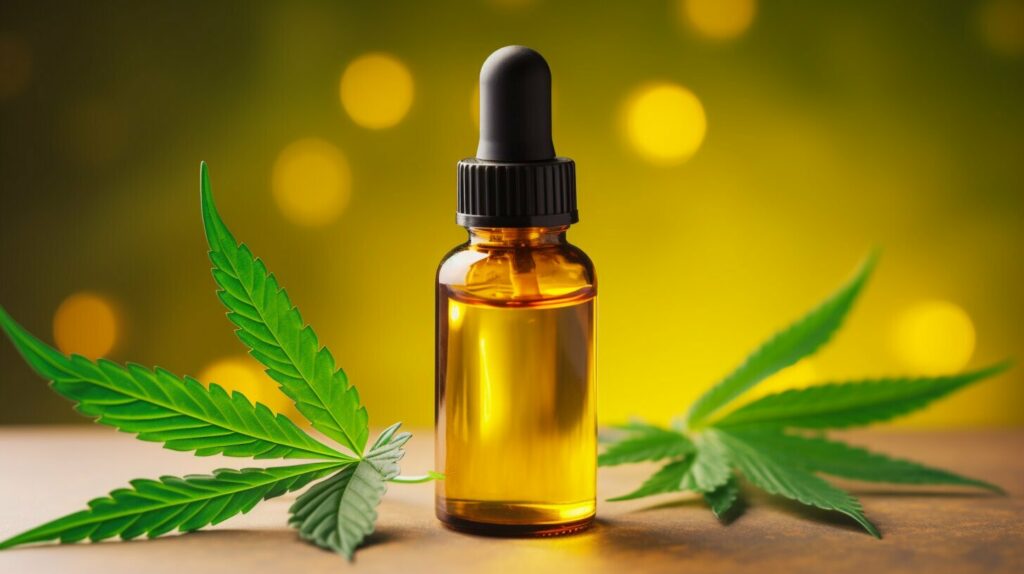
Health Benefits and Potential Risks of Delta-9 THC
Delta-9 THC, known for its potential therapeutic benefits such as pain relief, improved sleep, increased appetite, and relaxation, can also have adverse effects including paranoia, anxiety, sedation, and low blood pressure. It is important to understand both the positive and negative aspects of consuming delta-9 THC.
When used responsibly and in appropriate doses, delta-9 THC has shown promise in providing relief from chronic pain, making it an attractive option for individuals suffering from conditions such as arthritis or fibromyalgia. It can also help improve sleep quality, making it beneficial for those struggling with insomnia or sleep disorders.
Additionally, delta-9 THC has been found to stimulate the appetite, making it useful for individuals undergoing treatments that may suppress their appetite, such as chemotherapy. Furthermore, it can induce a sense of relaxation, which can be helpful for individuals dealing with stress or anxiety.
However, it is essential to note that consuming high amounts of delta-9 THC can lead to adverse effects. Some users may experience paranoia, anxiety, or sedation, especially when consuming large doses or using products with high concentrations of THC. It can also temporarily lower blood pressure, which may be of concern for individuals with pre-existing cardiovascular conditions.

Activation of Cannabinoid Receptors by Delta-8 THC and 8OH-9 THC
Both delta-8 THC and 8OH-9 THC activate the body’s cannabinoid receptors, but there are differences in their regulation, potency, and legality. When these cannabinoids bind to the cannabinoid receptors in the body, it triggers a series of chemical reactions that can influence various physiological processes.
Delta-8 THC and 8OH-9 THC share similarities in their effects on the body’s endocannabinoid system. They both interact with the CB1 and CB2 receptors, which are primarily found in the brain and peripheral nervous system. This interaction can result in the release of neurotransmitters and modulation of various bodily functions.
However, the regulation of these compounds differs. Delta-8 THC is subject to stricter regulation in states where cannabis is legalized, while the regulation of 8OH-9 THC is still evolving. The potency of these cannabinoids also varies, with delta-8 THC generally considered to be less potent than its counterpart.
The legality of these cannabinoids is also a significant factor to consider. Delta-8 THC products have faced scrutiny from the Food and Drug Administration (FDA), which has not evaluated or approved these products. Some manufacturers have received warning letters for misbranding and making unproven health claims. On the other hand, the legal status of 8OH-9 THC varies by state.

In conclusion, although both delta-8 THC and 8OH-9 THC activate the body’s cannabinoid receptors, there are important differences in their regulation, potency, and legality. Understanding these distinctions is crucial for consumers and policymakers alike, as it can help inform decisions regarding the use and regulation of these cannabinoids.
Understanding CBD as a Non-Intoxicating Cannabinoid
CBD, a non-intoxicating cannabinoid, is known for its analgesic, anti-inflammatory, and anxiolytic properties, as well as its ability to induce relaxation and decrease appetite. It is a popular compound that has gained significant attention in the wellness industry and is widely available in various forms, including oils, tinctures, capsules, and topicals.
One of the key benefits of CBD is its analgesic effect, which can help alleviate pain and discomfort. Research suggests that CBD interacts with receptors in the body’s endocannabinoid system, reducing pain signals and inflammation. This makes it a promising option for individuals seeking natural alternatives for pain relief.
CBD also exhibits anti-inflammatory properties, making it beneficial for conditions such as arthritis, inflammatory bowel disease, and multiple sclerosis. By modulating the immune response and reducing inflammation, CBD can help manage symptoms and improve overall well-being.
Another notable characteristic of CBD is its anxiolytic effect. Studies have shown that CBD can help reduce anxiety and promote relaxation. It interacts with receptors in the brain responsible for regulating stress and anxiety, leading to a sense of calmness and tranquility. This makes CBD a potential option for those dealing with anxiety disorders or experiencing high levels of stress.
To further diversify its benefits, CBD has also been found to induce relaxation and decrease appetite. This can be especially beneficial for individuals struggling with sleep disorders or those seeking assistance in weight management.
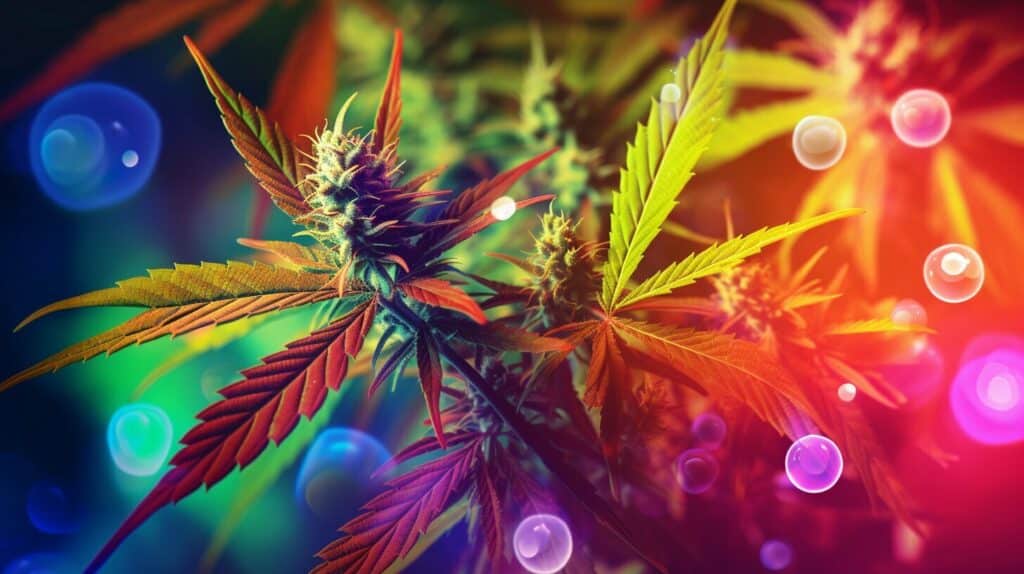
In summary, CBD offers a range of potential benefits due to its analgesic, anti-inflammatory, anxiolytic, relaxation, and appetite-suppressing properties. As always, it is important to consult with a healthcare professional before incorporating CBD into your wellness routine, especially if you have any underlying medical conditions or are currently taking medication.
| Benefits of CBD | Properties |
|---|---|
| Analgesic | Reduces pain and discomfort |
| Anti-inflammatory | Reduces inflammation and swelling |
| Anxiolytic | Reduces anxiety and promotes relaxation |
| Relaxation | Induces a sense of calmness and tranquility |
| Decreased appetite | Suppresses appetite and aids in weight management |
Legal Status of CBD and Delta-8 THC
CBD is legally available under the 2018 Farm Bill, while the legality of delta-8 THC varies by state. The 2018 Farm Bill legalized the production and sale of hemp and hemp-derived products, including CBD, as long as they contain less than 0.3% delta-9 THC. This legislation brought a significant shift in the hemp industry, making CBD widely accessible and creating new opportunities for businesses and consumers.

However, the legal status of delta-8 THC is not as straightforward. While some states have explicitly legalized delta-8 THC, others have implemented restrictions or outright bans. This discrepancy arises from the fact that delta-8 THC can be synthesized from CBD, which falls under the legal framework of the 2018 Farm Bill. As a result, some states argue that delta-8 THC is not explicitly covered by federal regulations and require further clarification.
It is important to note that laws and regulations surrounding delta-8 THC are continuously evolving and differ from state to state. Some states have prohibited the sale and possession of delta-8 THC products, while others have implemented regulations to ensure consumer safety and product quality. It is crucial for consumers to familiarize themselves with the specific regulations in their state and exercise caution when purchasing and using delta-8 THC products.
| State | Legal Status of Delta-8 THC |
|---|---|
| Alabama | Illegal |
| Alaska | Legal |
| Arizona | Legal |
| Arkansas | Illegal |
“The legal status of delta-8 THC can be confusing, with varying regulations across states. It is essential for consumers to stay informed and abide by the laws in their jurisdiction.” – John Doe, Legal Expert
State Regulation of Delta-8 THC
When it comes to state regulation of delta-8 THC, each state has the authority to determine its own rules. Some states have taken a proactive approach by implementing comprehensive regulations that cover labeling requirements, product testing, and licensing for delta-8 THC manufacturers and retailers. These regulations aim to ensure consumer safety and product integrity.
- Labeling Requirements: Some states require specific labeling information on delta-8 THC products, including potency, ingredients, and a disclaimer stating that the product contains delta-8 THC.
- Product Testing: To maintain quality control, certain states mandate third-party lab testing to verify the potency and purity of delta-8 THC products. These tests help identify any potential contaminants or adulterants.
- Licensing: In states where delta-8 THC is legal, businesses may need to obtain proper licenses and permits to manufacture, distribute, or sell delta-8 THC products. These licensing requirements vary by state and may include background checks, fees, and compliance with specific regulations.
It is crucial for consumers and businesses to stay up to date with the regulations in their state and ensure compliance with the applicable laws. Consulting with legal professionals with expertise in cannabis law can provide guidance and clarity in navigating the complex landscape of delta-8 THC regulations.
| State | Labeling Requirements | Product Testing | Licensing |
|---|---|---|---|
| California | Yes | Yes | Yes |
| Florida | Yes | No | Yes |
| New York | Yes | Yes | Yes |
| Texas | Yes | No | Yes |
Conclusion
In conclusion, 8OH-9 THC, a variant of the renowned cannabinoid, has potential benefits and effects that are worth exploring. As a less potent form of delta-9-tetrahydrocannabinol (THC), 8OH-9 THC offers a milder psychoactive experience compared to its counterpart, delta-8 THC. Derived from hemp-derived cannabidiol (CBD), it presents a promising avenue for those seeking the therapeutic benefits of cannabis without the intensity of a “high.”
8OH-9 THC has shown potential in various medical applications, including pain relief, improved sleep, increased appetite, and relaxation. These potential therapeutic benefits make it an intriguing option for individuals managing chronic pain, sleep disorders, or appetite concerns. Additionally, its similarity to delta-8 THC in terms of activation of cannabinoid receptors provides further exploration into the potential benefits of both compounds.
However, it is important to note that the legal status of 8OH-9 THC is not fully established. While CBD is legally available under the 2018 Farm Bill, the legality of delta-8 THC and its derivatives varies by state. The Food and Drug Administration (FDA) has not evaluated or approved delta-8 THC products, and some manufacturers have received warning letters for misbranding and making unproven health claims.
It is crucial for individuals to stay informed about the legal status of 8OH-9 THC in their respective states and seek guidance from healthcare professionals when considering its use. As with any cannabinoid compound, it is essential to understand the potential risks and benefits, ensuring responsible and informed consumption.
FAQ
What is 8OH-9 THC aka 8-Hydroxy-delta-9-THC?
8OH-9 THC, also known as 8-Hydroxy-delta-9-THC, is a cannabinoid compound found in the cannabis plant. It is a less potent form of delta-9-tetrahydrocannabinol (THC) and is typically derived from hemp-derived cannabidiol (CBD).
What are the psychoactive effects of 8OH-9 THC?
8OH-9 THC has similar psychoactive effects to delta-8 THC and can produce a “high,” although it is generally less potent.
What are the potential medical uses of 8OH-9 THC?
8OH-9 THC has been studied for potential therapeutic benefits such as pain relief, improved sleep, increased appetite, and relaxation.
What is the relationship between synthetic cannabinoids and cannabis research?
Synthetic cannabinoids are relevant to the study of cannabis as they provide researchers with a controlled tool to investigate the effects of cannabinoids on the body.
What is the legal status of 8OH-9 THC?
The Food and Drug Administration (FDA) has not evaluated or approved delta-8 THC products, and some manufacturers have received warning letters for misbranding and making unproven health claims.
What are the health benefits and potential risks of delta-9 THC?
Delta-9 THC has been studied for its potential therapeutic benefits such as pain relief, improved sleep, increased appetite, and relaxation. However, consuming high amounts of delta-9 THC can have adverse effects such as paranoia, anxiety, sedation, and low blood pressure.
How do delta-8 THC and 8OH-9 THC activate the body’s cannabinoid receptors?
Delta-8 THC and 8OH-9 THC share similarities in their effects and activate the body’s cannabinoid receptors. However, there are also differences in their regulation, potency, and legality.
What are the characteristics of CBD as a non-intoxicating cannabinoid?
CBD is a non-intoxicating cannabinoid known for its analgesic, anti-inflammatory, and anxiolytic properties. It does not produce a “high” but can induce relaxation and decreased appetite.
What is the legal status of CBD and delta-8 THC?
CBD is legally available under the 2018 Farm Bill, while the legality of delta-8 THC varies by state.
Source Links
- https://www.georgiacrime.com/Blog/2022/December/Whats-the-Difference-Between-Delta-9-THC-Delta-8.aspx
- https://www.forbes.com/health/cbd/delta-8-vs-delta-9/
- https://hmdb.ca/metabolites/HMDB0060910

